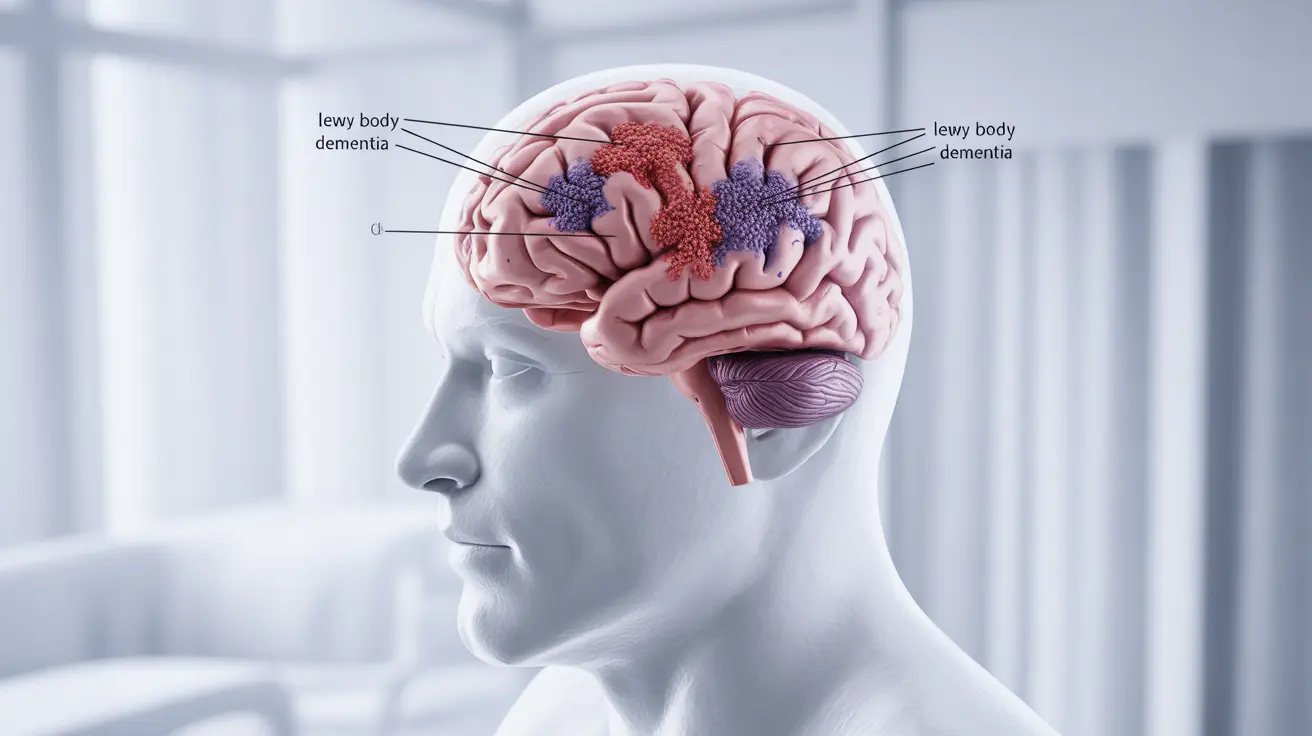Lewy body dementia (LBD) is a progressive neurological disorder that affects millions of people worldwide. Understanding its seven distinct stages can help families and caregivers better prepare for and manage the challenges ahead. This comprehensive guide explores each stage of LBD, from early symptoms to advanced care needs.
What is Lewy Body Dementia?
Lewy body dementia is characterized by the buildup of abnormal protein deposits called Lewy bodies in the brain. These deposits affect various brain functions, leading to a complex set of symptoms that can impact cognitive ability, movement, and behavior. Unlike other forms of dementia, LBD often presents with unique features such as visual hallucinations and fluctuating alertness early in the disease process.
The Seven Stages of Lewy Body Dementia
Stage 1: No Cognitive Decline
During this early stage, individuals may function normally with no apparent symptoms. However, subtle changes might be occurring at the cellular level. Regular medical check-ups can help identify potential warning signs.
Stage 2: Very Mild Changes
At this stage, individuals may experience slight changes in memory and thinking abilities. Common symptoms include:
- Occasional forgetfulness
- Mild sleep disturbances
- Subtle changes in movement
- Minor visual processing difficulties
Stage 3: Mild Cognitive Decline
The third stage brings more noticeable symptoms:
- More frequent confusion and memory lapses
- Difficulty with complex tasks
- Beginning of visual hallucinations
- Changes in attention and concentration
- Increased sleep disorders
Stage 4: Moderate Cognitive Decline
During this stage, symptoms become more pronounced:
- Notable memory problems
- Significant difficulty with daily tasks
- More frequent hallucinations
- Movement issues similar to Parkinson's disease
- Depression or anxiety may develop
Stage 5: Moderately Severe Cognitive Decline
The fifth stage marks significant changes:
- Need for assistance with daily activities
- Major memory and thinking problems
- Increased risk of falls
- More severe movement issues
- Regular hallucinations and delusions
Stage 6: Severe Cognitive Decline
At this advanced stage, individuals require extensive support:
- Constant supervision needed
- Significant personality changes
- Severe movement problems
- Difficulty recognizing loved ones
- Problems with sleep-wake cycles
Stage 7: Very Severe Cognitive Decline
The final stage requires round-the-clock care:
- Complete dependence on caregivers
- Limited communication abilities
- Severe physical limitations
- Increased risk of infections
- Difficulty with basic functions
Supporting Someone Through LBD Progression
Caregivers can provide support through various approaches:
- Maintaining consistent daily routines
- Creating a safe living environment
- Working closely with healthcare providers
- Joining support groups
- Planning for future care needs
Treatment Approaches
While there's no cure for LBD, various treatments can help manage symptoms:
- Medications for cognitive and movement symptoms
- Physical therapy
- Occupational therapy
- Environmental modifications
- Regular medical monitoring
Frequently Asked Questions
What are the key symptoms to expect at each of the 7 stages of Lewy body dementia?
Each stage brings distinct symptoms, progressing from mild forgetfulness to complete dependence. Early stages show subtle memory changes and sleep issues, middle stages feature hallucinations and movement problems, while later stages involve severe cognitive decline and physical limitations.
How does Lewy body dementia progress from early mild symptoms to severe cognitive decline?
LBD typically progresses from mild memory issues and sleep disturbances to increasingly severe cognitive problems, hallucinations, and movement difficulties. The progression rate varies by individual but generally occurs over several years.
What distinguishes Lewy body dementia stages from other types of dementia like Alzheimer's?
LBD often features early visual hallucinations, fluctuating attention, and movement problems similar to Parkinson's disease. These symptoms typically appear earlier than in Alzheimer's, and cognitive fluctuations are more pronounced.
How can caregivers best support someone with Lewy body dementia as the disease advances?
Caregivers should focus on maintaining routines, ensuring safety, working with healthcare providers, and adapting care strategies as symptoms progress. Professional support and respite care are crucial for sustainable caregiving.
Are there treatments or lifestyle changes that can help slow the progression through Lewy body dementia stages?
While no treatments can stop LBD progression, medications, physical activity, cognitive stimulation, and healthy lifestyle choices may help manage symptoms and potentially slow decline. Regular medical care and monitoring are essential.




